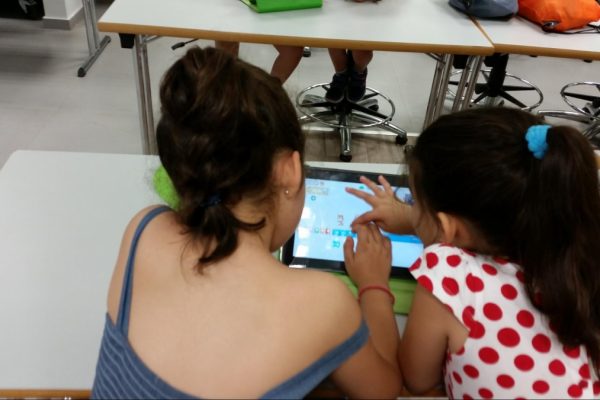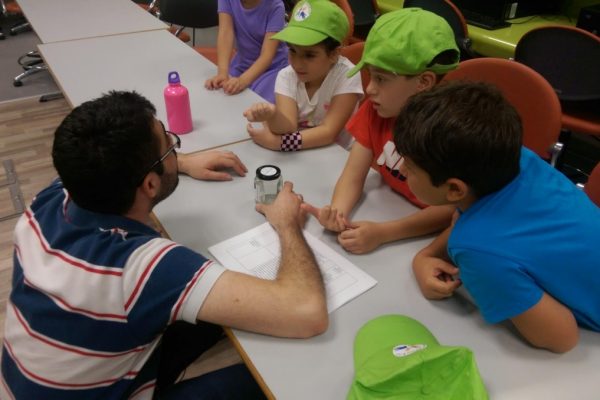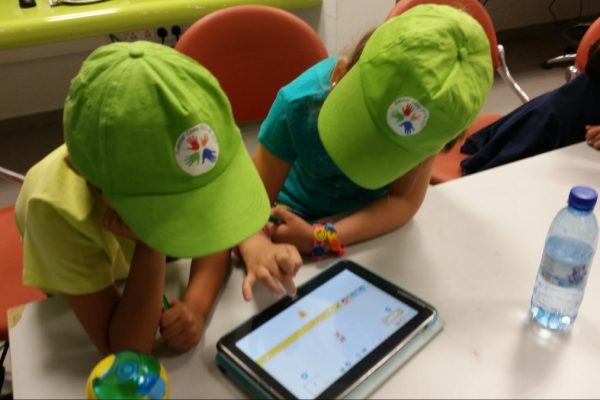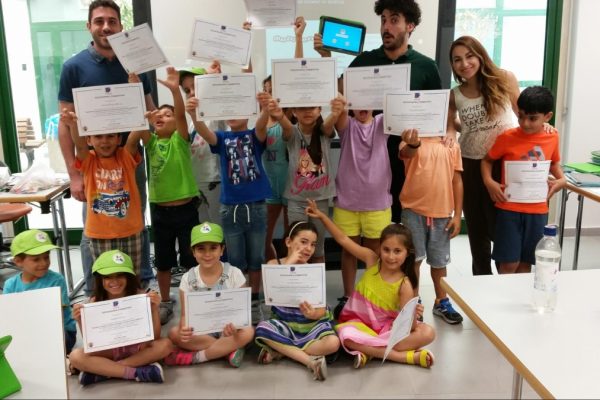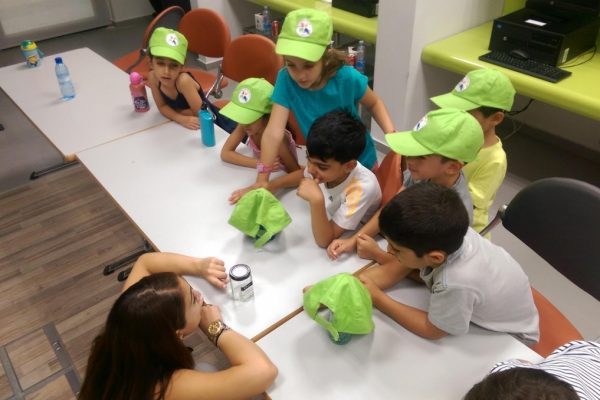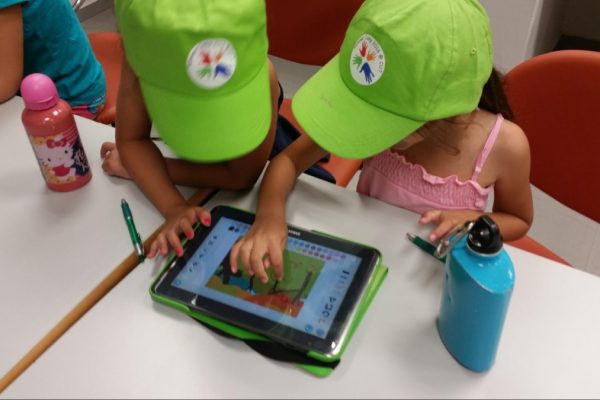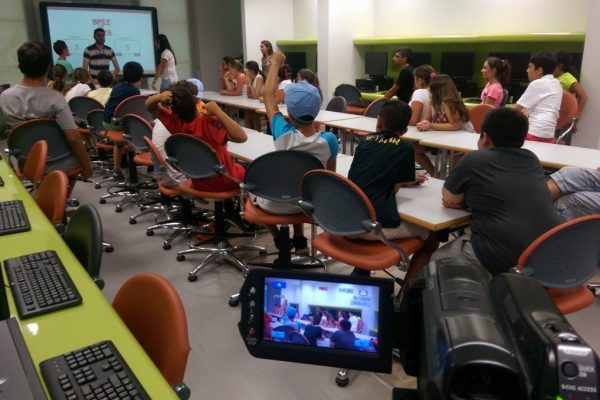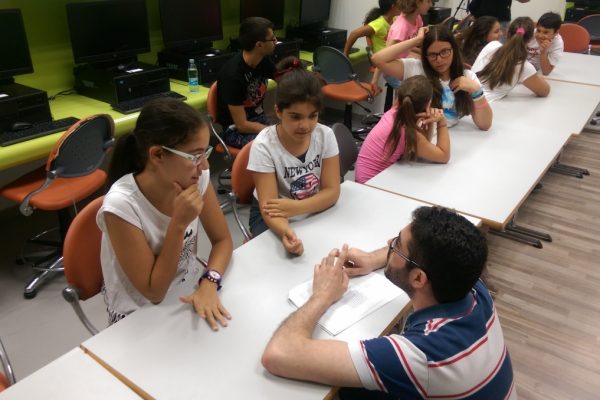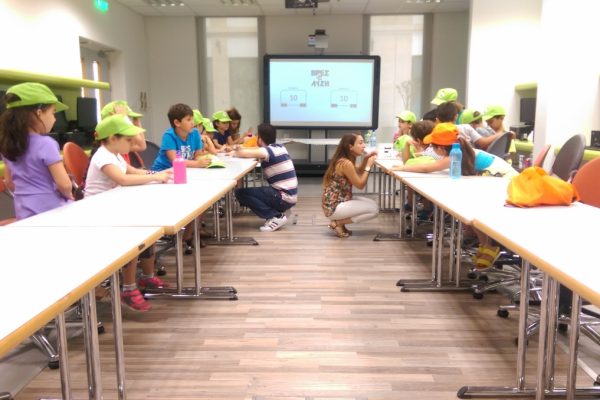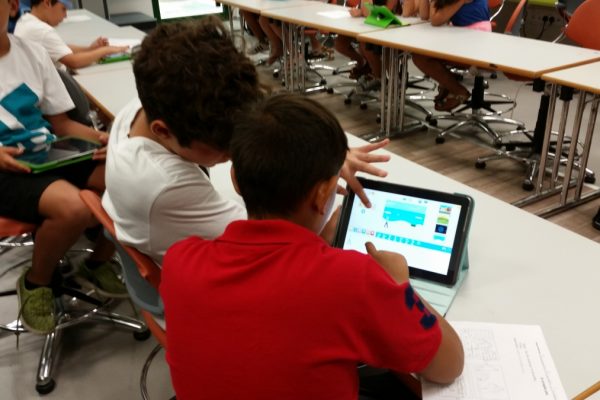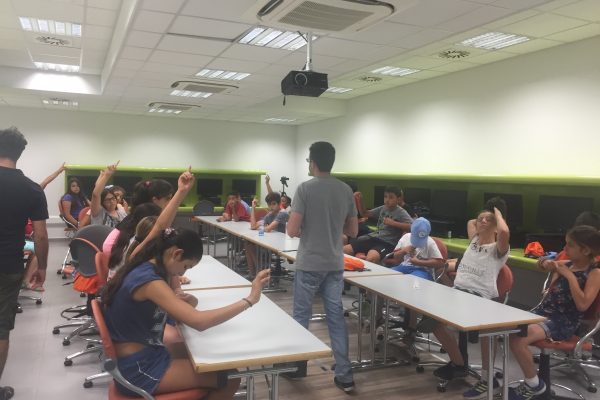Designing digital stories on contemporary environmental problems
From 27-30 June 2016, the MCL Research group enacted a four-day workshop which was addressed to primary school children. In particular, a total of 66 primary school children participated in the summer club, and were invited to develop their own digital stories on waste management, employing Scratch Jr. In this way, the Summer Club served as an empowerment activity, for enhancing children’s environmental knowledge and programming skills.
Scratch Jr is a mobile application released in 2014 and was developed by Tufts University, with grants from the NSF. Scratch Jr is based on a simplified version of the Scratch graphical programming language for enabling young children to easily learn programming and create various digital projects such as digital games or interactive stories and animations. Scratch Jr, in contrast to traditional text-based programming languages, employs the building block approach; children as young programmers have the opportunity to develop programming algorithms simply by dragging and dropping colorful building blocks that indicate different commands (e.g. motion commands, triggering commands, sound commands, control commands etc.). The goal of Scratch Jr is to “develop and study the next generation of innovative technologies and curricular materials to support integrated STEM learning in early childhood education” (ScratchJr.org).
Overall, the Summer Club activities were designed to develop children’s knowledge and skills on the follow topics: (a) the use of new technologies (specifically designed for small children) to produce digital stories, (b) the development of creative thinking, (c) raise awareness on environmental issues, and (d) take active citizenship actions on these issues.
During the Summer Club all of the participating students were excited and collaborated in groups of 2-3 for developing their own digital stories. By the end of the project, all of the students expressed that through the activity had the opportunity to learn more about programming and waste management through an amusing and creative way!


